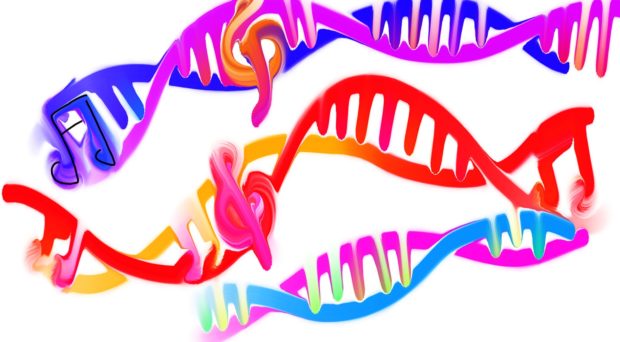mericans are embracing the use of DNA databases to solve crimes.
Over the past year DNA submitted to ancestry websites have helped police in the United States identify the killers in several unsolved crimes, including the Golden State Killer case– a longtime subject of internet sleuthing.
The practice has raised some concerns about police access to the genetic profiles of millions of Americans, with some privacy advocates demanding that courts prohibit this investigative tactic.
But those offered the chance to participate actively in the drama of criminal justice often find privacy to be of little concern, my research shows.
People love a good cold case

00:00
California police used the genealogy website GEDmatch to check DNA from dozens of murders and rapes committed by the Golden State Killer from 1976 to 1986, leading to the arrest of Joseph James DeAngelo in April 2018.
DNA submissions to GEDmatch – a public source of user-submitted DNA profiles created to help genealogy hobbyists investigate their family trees – have steadily increased since, founder Curtis Rogers told me.
About a thousand new profiles are uploaded to GEDmatch every day, Rogers says. The site contains over 1.2 million user-submitted DNA kits.
All users who opt in to its public portal are alerted that their DNA information may be searched by law enforcement agencies investigating a crime or seeking to identify a deceased person.
In Rogers’ experience, that possibility excites, rather than concerns, many customers. He routinely receives emails from people who want to post their DNA profile to GEDmatch “so they can assist in catching criminals, including those who might be family members, so that any unsolved cases can be solved, and families involved can get closure.
CeCe Moore – perhaps the best known scientist in the burgeoning field of genetic genealogy – sees similar sentiments on the popular Facebook page where she posts updates on recently solved cases.
“They want to be part of solving this,” she told me, “They are web sleuths – and perhaps their DNA could be key to cracking a case.”
Moore works with Parabon NanoLabs, a DNA technology company that builds the family tree of DNA found at a crime scene to help police identify suspects.
“People ask us all the time, how can I get my DNA to a place where you guys can solve cases?” Parabon CEO Steve Armentrout told me.
The ethics of public DNA
Home DNA kits are only the latest technology to dramatically increase public participation in monitoring, preventing and even solving crimes.
Websites like NextDoor have taken the neighborhood watch concept – when neighbors work together to prevent crime – online. The app Citizen alerts civilians about 911 calls to crimes underway in their vicinity and allows them to upload video of the incident. And over 700,000 people frequent the cold case discussions on Reddit, an online message board.
Amateur sleuths may jump at the chance of their DNA helping to catch a killer, but there are good reasons to pause and take stock of the ethical concerns raised by this practice.
By the end of 2018, 26 million people had taken an at-home ancestry test with 23andMe, Ancestry.com or similar sites, the MIT Technology Review found.
But you’re not just uploading your own DNA when you put it on one of these sites. You’re uploading the DNA of relatives, both close and distant.
That exposes many millions of people who have never taken a DNA test to possible police identification, raising tricky due process questions.
As more people are swept into genetic databases without their explicit consent, more sensitive personal information will effectively become public. Some day, these genetic profiles could be used by employers or insurance companies to assess the health of individuals, leading to discrimination and stigmatization.
‘I want him caught’
Making one’s DNA available to law enforcement agencies can also create problems of a more intimate nature: Namely, if a suspect is caught because of your DNA, that person is technically part of your biological family. You may become responsible for putting your own relative in jail.
“They want murderers and rapists and serial killers off the street,” she says of the people who talk to her about contributing their DNA to GEDMatch or similar sites. “These people are willing to make sacrifices for that to happen.”The genetic genealogist Cece Moore finds that doesn’t deter people.
The logic she often hears, Moore says, is: “If my second cousin is a serial killer, I want him caught. I want people to pay for these crimes even if its someone I am close to or I love.”
Research confirms these observations. A study published in the academic journal PLOS Biology in October 2018 found that 79% of 1,578 survey respondents – some of whom had themselves done a home DNA test with 23andMe or other genetic testing site – support police searches of websites like GEDmatch.
Respondents were most supportive of investigations for violent crimes, crimes against children, or missing persons, leading the authors to observe that “perceived invasions of privacy appear to be tolerable when the purpose is to catch violent or particularly depraved offenders.”
The continued success of genetic genealogy in solving cold cases will likely reinforce this public support.
Parabon recently announced that its services have solved over “1,000 years of cold cases in nine months.” This information, provided by the company, cannot be independently verified.
Meanwhile, popular television shows like 20/20 and Dr. Phil have begun to explore genetic genealogy, inspiring an even wider audience to see their own DNA as the potential missing link in an unsolved crime.
With this public support, and barring strict regulation that limits the use of DNA databases to solve crimes, consumer genealogy sites will likely play an ever greater law enforcement role.
[“source=salon”]









